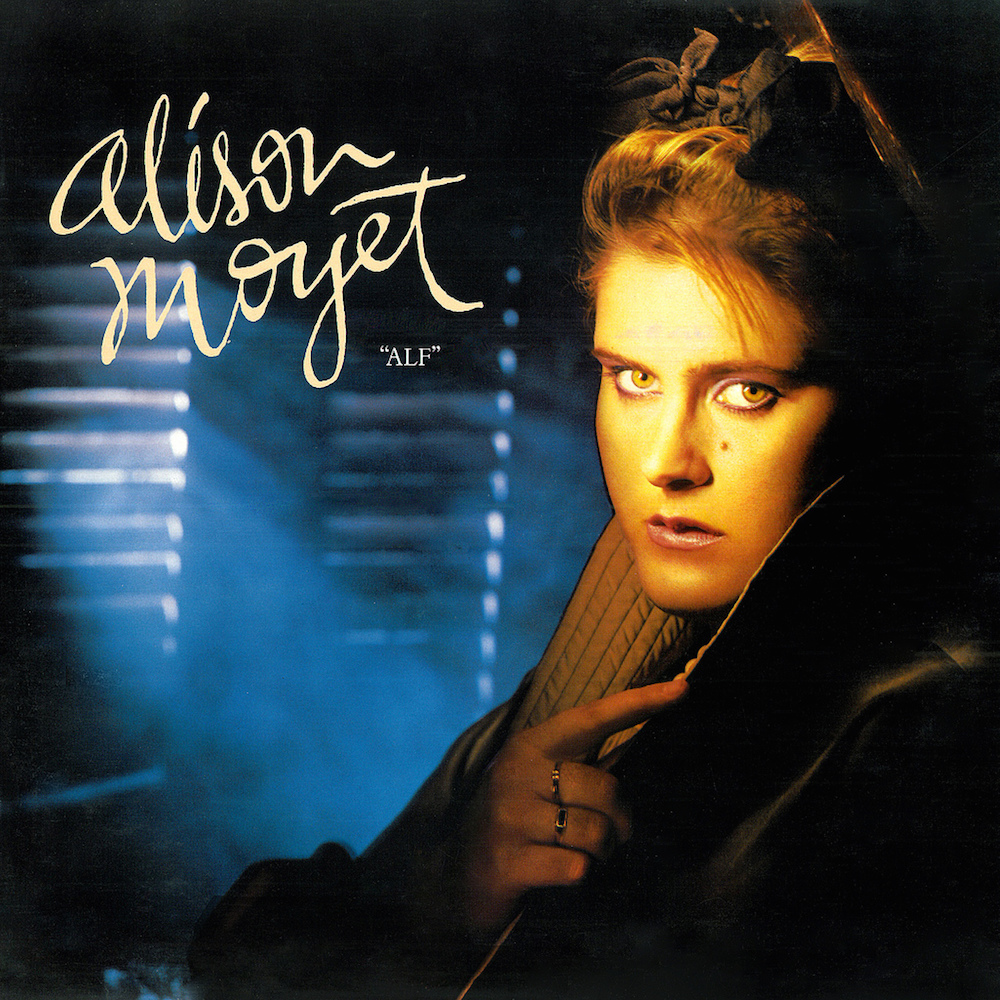When Alison Moyet launched her solo career, there was no small amount of anticipation. One of the few genuinely standout vocalists on the British Music scene in the early 80s, Moyet had impressed as the voice of Yazoo, with her warm and soulful voice managing to transcend the limitations of synthpop. Moyet was able to infuse the coldest and most emotionally disconnecting music with a feeling of genuine humanity. If she was able to have that effect backed by keyboards and synthetic drums, just imagine what she could do backed by a more organic sounding backing band!
Okay, I know rubbishing 80s synthesiser sounds is shooting at an easy target, but listening to Alf over three decades later, I can’t help but lament how old it sounds, and how much better it would have aged if it didn’t rely as heavily on a musical soundscape which must have sounded so futuristic at the time. Alf has the potential to be a great soul album, but the instrumentation and production mean that it sounds emotionally lightweight, which given this is an album by a vocalist as potent as Alison Moyet, is a real shame.
Alf finds Moyet still finding herself as a performer. It’s easy to forget that she was still in her early 20s when Alf was released, but she was already displaying almost limitless potential as a vocalist, and establishing herself as a solid songwriter. It’s a shame then that Alf is such a synthpop album, as it found her pigeonholed as the big-voiced girl in front of a load of digital sounds. As much success as Moyet has enjoyed and as many plaudits she has been awarded for her still stunning voice, she has spent too much of her career trying to escape the long shadow cast by Alf.
Putting the unrealised potential aside, Alf is a solid 80s pop album. “Love Resurrection” and “All Cried Out” are two of the finest songs of the era, and Moyet’s cover of Lamont Dozier’s “Invisible” remains an absolute joy. Much like Joe Cocker’s similarly “cutting edge” Sheffield Steel a couple of years prior, Alf must have sounded absolutely fantastic on the sound systems of the 80s, with their new-fangled CD players. It was a digital album for the digital age, and the contrast between Moyet’s all too human voice and the uptight and emotionless music she is singing over have it a wider audio scope than much of the mainstream pop music being released at the time.
Alf is a pop album that had the potential to be so much more. Alison Moyet, although no longer the commercial force she used to be, has forged a lengthy career and remains a well respected figure in the music industry. It’s just a shame that external forces tried to force her into a synthpop corner on her first solo album, and marketing machine was so effective. Such is the depth of Moyet’s talent, that she survived something which would almost certainly have creatively derailed a lesser talent. The fact that she survived and found her own voice after Alf is a testament to Alison Moyet’s spirit and determination.













No Comment